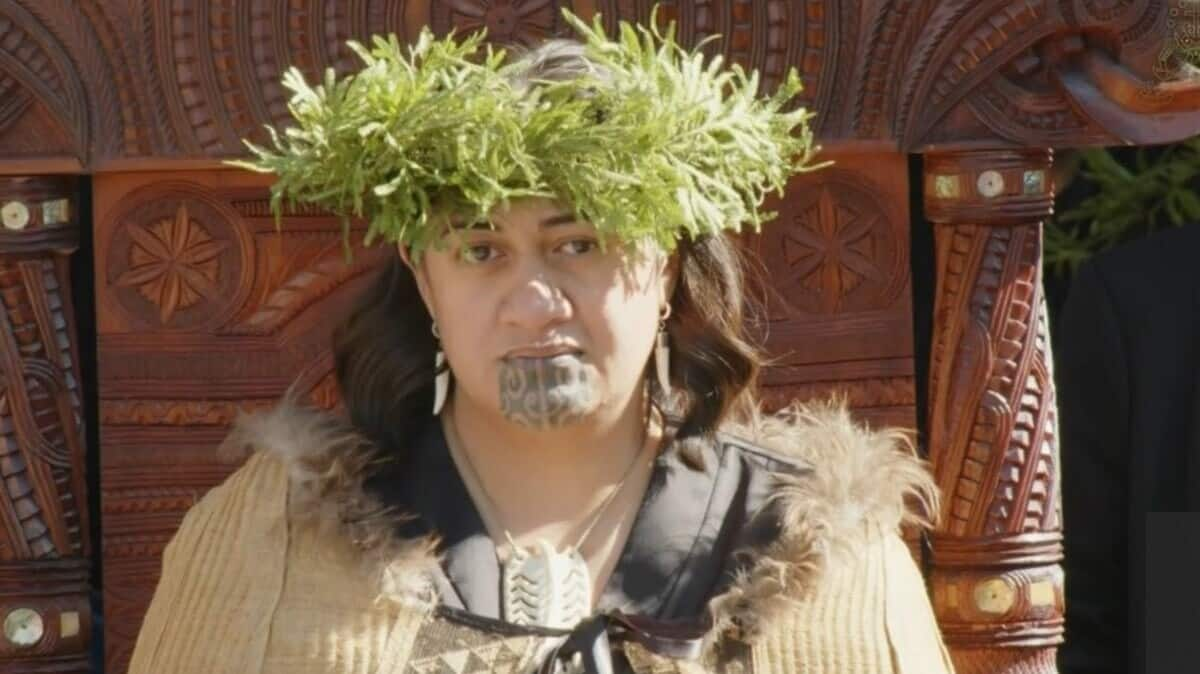
NZ's New Māori queen crowned—second female monarch in 8 generations
What's the story
Nga Wai Hono i te po Paki, the second-ever Maori queen in the eight-dynasty reign of the Kiingitanga movement in New Zealand, was crowned on Thursday. The ceremony took place at Turangawaewae marae and was attended by thousands of people. Maori leaders present at her crowning ceremony called her ascension to the throne a "new dawn" for the Kiingitanga movement. Te Arikinui Dame Te Atairangitaaku became the first Māori queen in 1966.
New era
Queen's ascension marks new generation in resistance movement
Paki, the youngest child and only daughter of the late Maori King Tuheitia Pootatau Te Wherowhero VII, was unveiled as the new queen during her father's six-day tangihanga (funeral). Her father passed away peacefully in his sleep at 69 following heart surgery. The Kiingitanga advisory council, a group of 12 elders from various tribes, selected Paki as their queen.
Crowning ceremony
Queen Paki's crowning ceremony and academic achievements
The Te Whakawahinga (raising up) ceremony, held in the small town of Ngaruawahia, saw 27-year-old Paki ascend to the throne. She was anointed with sacred oils and blessed with the Bible used to crown the first Maori king in 1858. Tekau-Maa-Rua chairman Che Wilson described this event as a significant tradition dating back eight generations, stating that they have chosen Paki as their new monarch following their ancestors' tikanga (customs).
Academic profile
Queen Paki's academic achievements and cultural contributions
Paki holds a master's degree in Maori cultural studies from Waikato University. At 19, she received her moko kauae (chin tattoo) as a tribute to her father and his years on the throne. She has also served on several boards, including the Te Kohanga Reo National Trust, an organization dedicated to revitalizing the Maori language.
Cultural preservation
Kiingitanga movement's role in preserving Maori culture
The Kiingitanga movement was established in 1858 as a force to resist colonization and strive to preserve Maori culture and land. While the monarch role is primarily ceremonial, it is also regarded as the paramount chief of several tribes. Since the election of New Zealand's conservative National party-led government in October, the Kiingitanga has played an increasingly prominent role in uniting Maori against proposed policies perceived by many as a rollback of Maori rights.